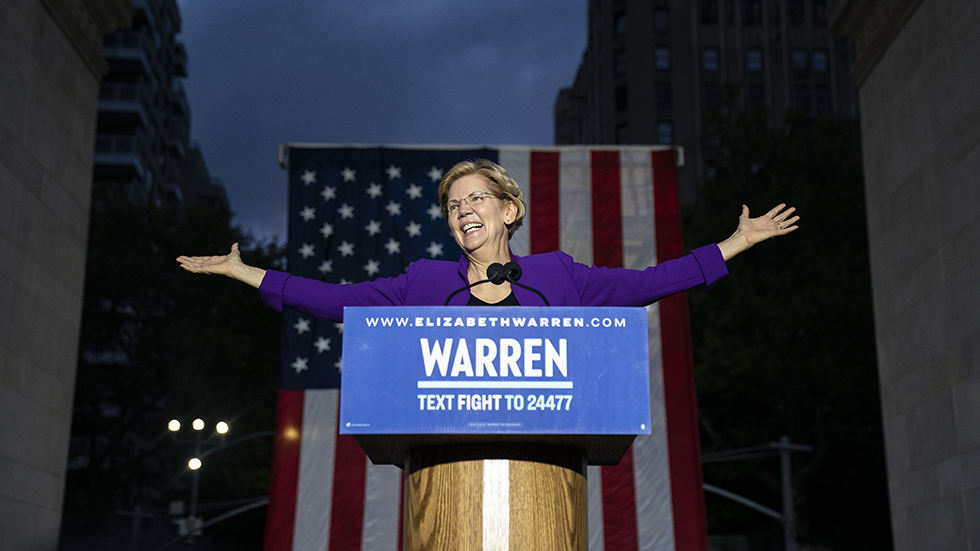Is the country ready for the “big structural change” that Sen. Elizabeth Warren is promising? Would the Democratic Party be wise to bet that it is? The answers to these questions will shape the outcome of the nomination contest and the general election.
Now that Ms. Warren has released her long-awaited Medicare for All plan, there is no longer any need to discuss this issue in the abstract. She has zoomed past the last offramp and is now fully committed to a plan that would revolutionize the way health care is financed and delivered in the U.S. She can’t run on this plan in the primaries and then shift to something more modest in the general election, even if she wants to. If Ms. Warren is the nominee, Medicare for All is what she’ll take to the country. Given the centrality of health care in our political debate, this plan will be much of the basis on which she is judged.
Since Ms. Warren made her plan public, analysts have sharpened their pencils and gone to work. Many believe she has underestimated the cost of her program and overestimated the revenue from the measures she would use to pay for it. But on one point there can be no doubt: Medicare for All would enroll everyone in the same government plan, whatever their preferences.
Let’s be clear about what this would mean. According to the most recent government statistics,
more than 218 million Americans now participate in private health-care plans, of which 179 million are employment-based. As critics of Medicare for All have pointed out, many of these plans are the result of tough negotiations in which employees have compromised on wages and working conditions in return for more-generous health-insurance benefits. These workers would be asked to surrender their hard-won gains in return for a promise that they will prefer what they get from the government instead.
In the early 1960s, when I was young and 70% of Americans told pollsters they trusted the federal government, this promise might have garnered wide acceptance. Today,
with trust below 20%, it will be a much harder sell.
Don’t take my word for it. As recently as March 2018, according to the Kaiser Family Foundation, support for Medicare for All stood at 59% and opposition at just 38%. Now, after more than a year of intensifying discussion,
support has fallen 8 points, to 51%, while opposition has risen by 9 points, to 47%.
Here’s a big reason why. As recently as January, 67% of those who favored Medicare for All believed that it wouldn’t jeopardize their family’s current health insurance. Although Kaiser hasn’t updated this figure, many of the plan’s early backers must have discovered that their prior belief was contrary to fact.
We need not conjecture about the current state of opinion among Democrats. In its most recent survey, Kaiser found that 55% of Democrats prefer a candidate who would build on the existing Affordable Care Act, compared with 40% who want to replace the ACA with Medicare for All. Several additions to the ACA would be broadly popular across party lines: Seventy-three percent of Americans favor expanding the ACA market to include a public option, 75% favor allowing people who don’t get employer-based insurance to buy health insurance through their state Medicaid programs, and 77% support creating a Medicare buy-in for Americans age 50 to 64. These last two proposals enjoy support from more than 60% of Republicans.
When supporters of Medicare for All are asked about the “main reason” they favor such a plan, 40% cite universal coverage, compared with only 17% who focus on health-care costs and affordability. This suggests that support for Medicare for All could drop even further if its backers were to learn that they could get most of what they want without turning the U.S. health-care system upside down.
Last month the Urban Institute published a
report examining eight reform plans ranging from modest changes at one end of the spectrum to Medicare for All at the other. One option would achieve universal coverage by filling in gaps in the ACA. It would reduce premiums and out-of-pocket expenses for all but the wealthiest Americans—all this at less than 10% of the additional federal revenue that Medicare for All would require. Perhaps Sen. Amy Klobuchar, Mayor Pete Buttigieg or former Vice President Joe Biden will choose to underscore this news with primary voters.
Ms. Warren insists that if Democrats are willing to put up a fight, they can get Medicare for All done. As I recall, the Light Brigade was full of fight, but its charge into enemy lines still yielded an epic catastrophe.
Ms. Warren should be commended for the wealth of detail in her plan, which allows voters to judge it for themselves. This said, she may well have penned the longest suicide note in recorded history. There’s no reason for the entire Democratic Party to sign it.
